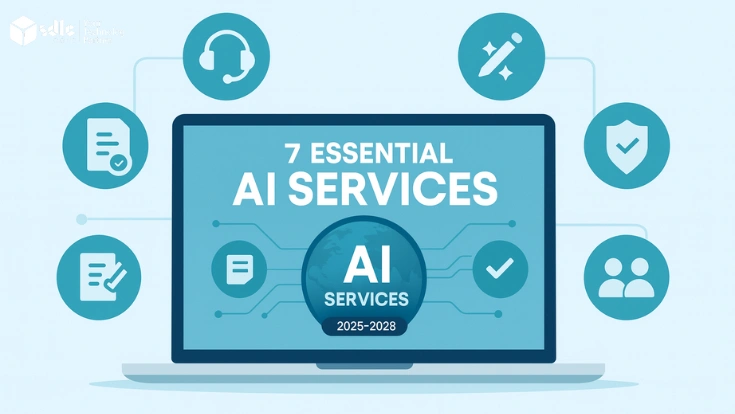
| AI Feature | Description |
|---|---|
| Advanced Decision Making | AI evaluates probabilities and outcomes to make optimal decisions during gameplay. |
| Pattern Recognition | AI identifies player tendencies and betting patterns for strategic play. |
| Game Analysis | AI provides insights by analyzing past games to refine strategies and tactics. |
| Enhanced Bluffing | AI simulates human-like bluffing strategies to confuse opponents. |
| Player Training | AI-powered tools help players improve their skills through simulations and feedback. |
| Game Security | AI monitors gameplay for fraud detection and fair play enforcement. |
Foundational AI Systems Behind Poker Games
Poker platforms depend on reliable backend systems for matchmaking, probability calculations, and game-state management. These systems are commonly built using structured AI development services to ensure consistent performance under high concurrency and real-time conditions.
Understanding AI's Impact on Poker
Understanding AI's Impact on Poker
One of the most prominent roles of AI in poker is in developing advanced strategies. AI-powered tools like poker bots and training software enable players to refine their skills by simulating countless scenarios. These systems can:
Identify optimal plays in various situations.
Provide real-time feedback on decision-making.
Help players understand complex statistical probabilities.
For instance, professional players use AI tools to study game theories, such as the Nash equilibrium, ensuring they remain competitive in high-stakes games.
Real-Time Decision Making
AI has a significant advantage in making decisions faster and more accurately than humans. In online poker, AI algorithms can instantly calculate probabilities and recommend the best course of action based on the current state of the game. This capability not only enhances the player’s performance but also ensures a smoother gameplay experience.

AI-Powered Opponent Analysis
Poker is as much about understanding your opponents as it is about understanding the game itself. AI excels in analyzing behavioral patterns and betting tendencies. Through machine learning, AI systems can:
Predict opponents’ moves with high accuracy.
Detect bluffing patterns based on deviations in behavior.
Adjust strategies dynamically to counteract opponents’ tactics.
Such capabilities give players leveraging AI a significant edge over those relying solely on human judgment.
Impact on Online Poker Platforms
Ensuring Fair Play
Personalizing Player Experience
The Role of AI in Poker Training
Aspiring poker players now have access to advanced training tools powered by AI. These tools simulate real-game scenarios, allowing players to:
Practice without financial risk.
Receive detailed insights into their performance.
Learn from mistakes and refine strategies effectively.
Popular AI-driven platforms offer tutorials, game simulations, and performance analytics, making poker training more accessible and efficient than ever before.
Ethical Concerns and Challenges

Fairness in Gameplay
Privacy Issues
Regulatory Challenges
The Future of AI in Poker Games
The role of AI in poker games is poised to expand even further. Future developments may include:
Enhanced Game Analytics: AI systems that provide deeper insights into game dynamics.
Virtual Reality (VR) Integration: Combining AI with VR to create immersive poker experiences.
Advanced Security Measures: AI-driven tools that enhance fraud detection and prevention.
As technology advances, AI will continue to redefine poker, offering new opportunities for players and the industry to grow.
Governance and Ethical AI in Poker Games
AI in poker must follow strict guidelines to avoid unfair advantages or manipulation. An AI consulting company can help define governance frameworks, transparency measures, and audit mechanisms for AI-driven gameplay systems.
Statistical Insights
| Aspect | Pre-AI Era | AI-Driven Era |
|---|---|---|
| Game Strategy | Rule-based, Human intuition | Data-driven, Optimal plays |
| Security | Reactive | Proactive, Real-time |
| Player Assistance | Limited | Comprehensive tools |
| Gameplay Difficulty | Static | Adaptive |
Your Poker Game Dream, Our Development Expertise!

Enterprise-Scale Poker Platforms
Large poker networks operating across regions require AI systems that scale while meeting compliance standards. Approaches followed by an enterprise AI development company help maintain consistency across tournaments, tables, and user segments.



